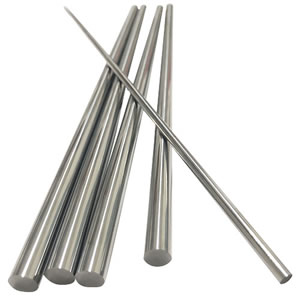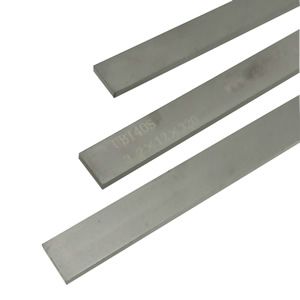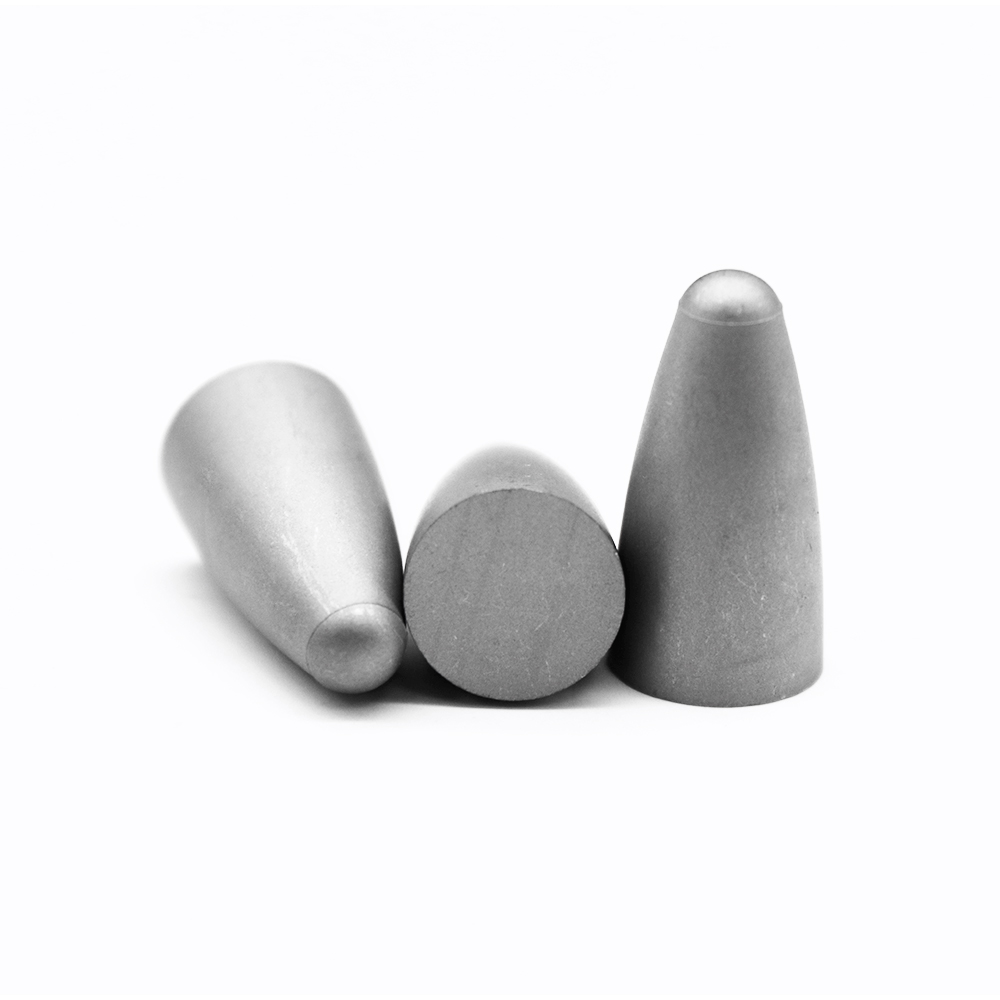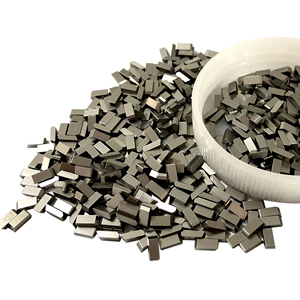Yadda za a Ƙara Ƙarfafa Aiki a Gyara ta Amfani da Sandunan Nickel Hardfacing na Sintered
Yadda za a Ƙara Ƙarfafa Aiki a Gyara ta Amfani da Sandunan Nickel Hardfacing na Sintered

A cikin duniyar masana'antu da masana'antu masu nauyi, raguwa na iya zama tsada. Rashin gazawar kayan aiki ba wai yana kawo cikas ga samarwa ba har ma yana haifar da hasarar kuɗi mai yawa. Ɗayan ingantacciyar mafita don haɓaka haɓakar gyaran gyare-gyare shine amfani da sandunan nickel mai wuyar fuska. Wannan labarin zai bincika yadda waɗannan sandunan nickel masu wuyar fuska za su iya inganta hanyoyin gyaran ku, rage farashi, da haɓaka aikinku a ƙarshe.
Fahimtar Sansanin Nickel Hardfacing Sanda
Sandunan nickel masu wuyar fuskantar sanduna samfuran injiniya ne da aka tsara don samar da juriya mai tsayi da tsayi. Wadannan sanduna an yi su ne daga haɗuwa da nickel da sauran abubuwa masu haɗawa, wanda, lokacin da aka yi amfani da shi zuwa saman da aka sawa, ya haifar da shinge mai wuyar gaske. Wannan tsari mai wuyar fuskantar ba wai kawai yana dawo da ainihin girman abubuwan da aka gyara ba har ma yana haɓaka aikin su, yana sa su dace da aikace-aikace masu buƙata.
1. Kimanta Bukatun Kayan Aikinku
Kafin haɗa sandunan fuskantar Nicar masu wuya a cikin ayyukan gyaran ku, yana da mahimmanci don tantance takamaiman bukatun kayan aikin ku. Gano abubuwan da ke da saurin lalacewa da tsagewa. Ta hanyar fahimtar wuraren da ke buƙatar ƙarfafawa, za ku iya yanke shawara mai zurfi game da inda za ku yi amfani da fuska mai wuya, ƙara yawan amfanin waɗannan sanduna.
2. Horar da Ƙungiyarku
Saka hannun jari a cikin horarwa don kula da ƙungiyoyin gyaran ku na iya haɓaka haɓakar amfani da sanduna masu wuyar fuskantar nickel. Ya kamata ma'aikatan ku su kasance ƙwararrun dabarun aikace-aikacen, ka'idojin aminci, da fa'idodin yin tauri. Wannan ilimin yana ba su damar yin gyare-gyare yadda ya kamata, rage kurakurai da kuma tabbatar da ingantaccen aikace-aikacen kowane lokaci.
3. Zaɓi Dabarar Hardfacing Dama
Akwai dabaru daban-daban don shafa sandunan nickel mai wuyar fuska, gami da walda da feshin zafi. Kowace hanya tana da fa'ida, dangane da takamaiman aikace-aikacen da kayan aikin da ake gyarawa. Misali, ana fifita walda sau da yawa don ƙaƙƙarfan haɗin kai da dorewa, yayin da feshin zafin jiki ya dace da sifofin sarƙaƙƙiya. Zaɓin dabarun da ya dace zai haɓaka tsawon gyare-gyare da kuma rage yawan kulawa.
4. Inganta Jadawalin Gyaran ku
Inganci ba kawai game da aikace-aikacen sanduna masu ƙarfi ba; ya kuma shafi yadda aka tsara gyara. Aiwatar da tsarin kulawa da tsinkaya zai iya taimakawa wajen gano lokacin da ake buƙatar gyara kafin rashin nasara ya faru. Ta hanyar tsara gyare-gyare a lokacin da aka tsara, za ku iya rage raguwa da tabbatar da cewa kayan aikin ku suna aiki a mafi girman aiki.
5. Yi Amfani da Kayayyakin inganci
Tasirin sandunan nickel mai wuyar fuska yana dogara sosai akan ingancin kayan da aka yi amfani da su. Haɗin kai tare da ƙwararrun masana'anta, kamar Kamfanin Zhuzhou Better Tungsten Carbide, yana tabbatar da cewa kun karɓi sanduna masu inganci waɗanda suka dace da matsayin masana'antu. Wannan jarin yana biya a cikin dogon lokaci, saboda kayan da suka fi dacewa suna haifar da ƙarin gyare-gyare masu ɗorewa da ƙarancin maye gurbin.
6. Kula da Ayyukan Bayan Gyara
Bayan yin amfani da sandunan nickel mai wuyar fuska, yana da mahimmanci don saka idanu akan ayyukan da aka gyara. Binciken akai-akai zai taimake ka ka auna tasirin tsarin fuskantar wahala da gano duk wata matsala mai yuwuwa da wuri. Wannan hanya mai fa'ida tana ba da damar yin shisshigi na kan lokaci, ƙara haɓaka haɓakar hanyoyin gyaran ku.
7. Yin Amfani da Fasaha
Ci gaban fasaha, kamar kwamfyutan kwamfyuta da nazarce-nazarce, na iya taimakawa wajen tsarawa da aiwatar da gyare-gyare. Ta amfani da software wanda ke yin nazarin yanayin sawa da tsinkaya maki gazawa, zaku iya inganta amfani da sandunan nickel mai wuyar fuskantar Rasha da kuma tabbatar da cewa gyare-gyaren ya dace kuma yana da inganci.
8. Gina Dogon Dangantaka tare da masu kaya
Ƙirƙirar dangantaka mai ƙarfi tare da masu samar da ku na iya haifar da ingantacciyar tallafi da samun dama ga albarkatu. Amintaccen mai samar da kayayyaki zai ba ku shawara mai gudana, sabuntawa akan sabbin samfura, da taimako tare da kowane ƙalubale da zaku iya fuskanta a cikin ayyukan gyaran ku. Wannan haɗin gwiwar zai iya taimaka muku ci gaba da gasar da haɓaka aikin ku.
9. Haɓaka Al'adu na Ci gaba da Ingantawa
Ƙarfafa al'adar ci gaba da ci gaba a cikin ƙungiyar ku na iya tasiri ga ingantaccen gyara. Nemi ra'ayi daga ƙungiyoyin gyaran ku game da matakai masu wahala da kowane ƙalubale da suka fuskanta. Yi amfani da wannan bayanin don inganta fasahohin ku da tafiyar matakai, tabbatar da cewa koyaushe kuna ƙoƙarin samun kyakkyawan sakamako.
10. Auna ROI
A ƙarshe, yana da mahimmanci don auna komawa kan saka hannun jari (ROI) na amfani da sanduna masu wuyar fuskantar nickel. Bibiyar ma'auni kamar farashin gyarawa, raguwar lokaci, da tsawon rayuwar kayan aiki kafin da bayan aiwatar da hanyoyin fuskantar wahala. Fahimtar tasirin kuɗi ba kawai zai ba da hujjar saka hannun jarin ku ba amma kuma zai jagoranci yanke shawara na siyan nan gaba.
Kammalawa
Haɗa sandunan nickel masu wuyar fuska a cikin ayyukan gyaran ku na iya haɓaka aiki sosai da rage farashi. Ta hanyar kimanta buƙatun kayan aikin ku, horar da ƙungiyar ku, zabar dabarun da suka dace, da yin amfani da fasaha, zaku iya inganta ayyukan gyaran ku da haɓaka aikin gaba ɗaya. A Kamfanin Zhuzhou Better Tungsten Carbide, mun himmatu wajen samar da ingantattun hanyoyin magance matsalolin da ke ƙara ƙima ga ayyukanku. Rungumar waɗannan dabarun don tabbatar da cewa kayan aikinku sun ci gaba da aiki da inganci, a ƙarshe suna jagorantar kasuwancin ku zuwa ga nasara. Mu ne ɗaya daga cikin manyan masu samar da nickel mai wahala a duniya. Za a iya kwatanta ingancin mu da sandar da ke fuskantar taurin nickel na Kennametal.





















